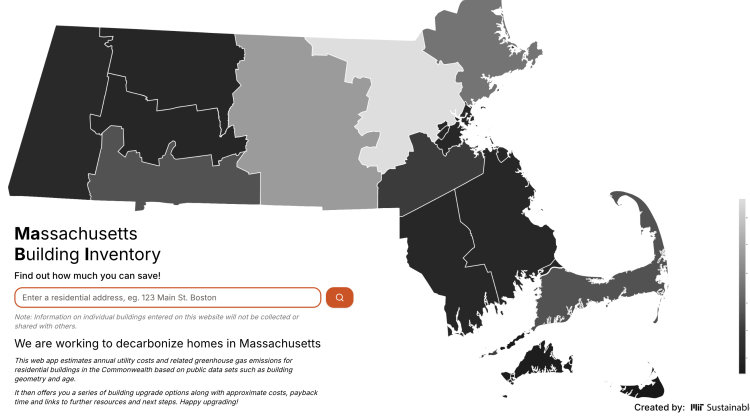Massachusetts Building Intelligence (MaBI) is a web application that estimates annual utility costs and greenhouse gas emissions for residential buildings in the Commonwealth. The interactive tool helps Massachusetts residents visualize and make decisions concerning energy-saving building upgrades. MaBI uses information like building geometry, type, and age from public datasets to generate insights into building performance without accessing individual homeowner energy bills. The platform is now live at https://mabi.mit.edu.
MaBI was developed by the Sustainable Design Lab (SDL), led by Professor Christoph Reinhart and with key contributions from Darya Guettler, Sam Wolk, Mary Ann Jin, Soala Ajienka and Eric Kyle Cheung. Energy estimates are powered by EnergyPlus, the U.S. Department of Energy’s standard engine for energy simulation. The tool combines this engine with Python-based modeling to predict energy use across fuel types using GIS and tax assessor data from MassGIS, Overture maps, and more. Emissions are calculated using comprehensive Massachusetts-wide factors that account for transmission losses and upstream methane emissions, while retrofit and energy cost estimates draw on public datasets from MassCEC and RMI. Building diagrams help residents visualize potential upgrades. With MaBI, the SDL brings powerful, transparent, and accessible tools to the forefront of the state’s decarbonization efforts.



